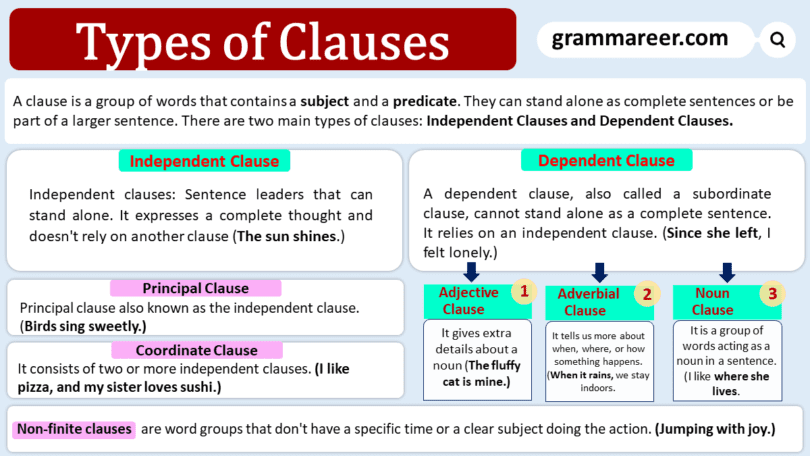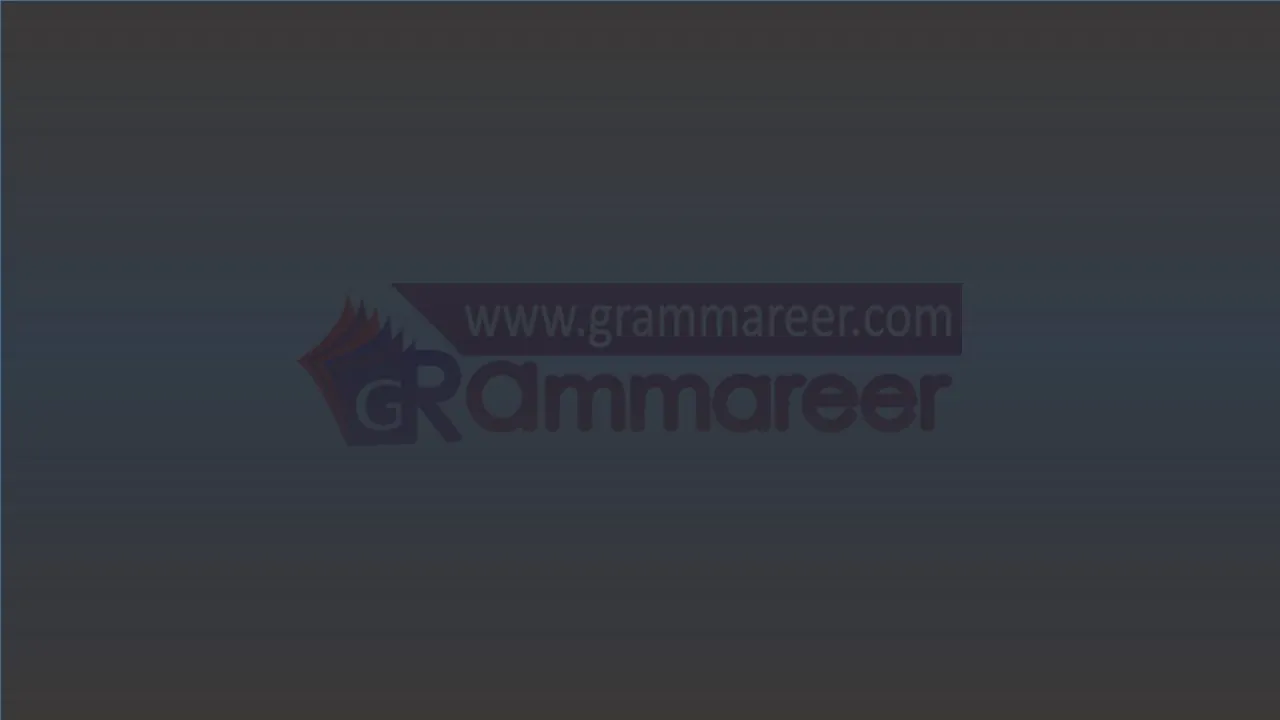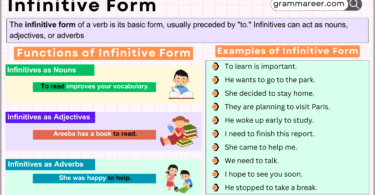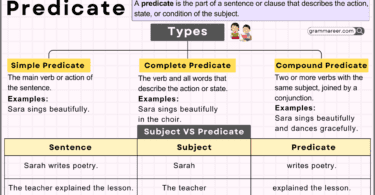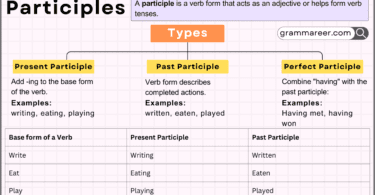In English, a basic sentence has a subject and a predicate, forming a simple sentence. Essentially, sentences are made up of clauses. This article will introduce you to the concept of clauses, explaining their meaning and definition, exploring the different types of clauses, and demonstrating how they function in sentences. Examples are provided to enhance your understanding of these concepts. Explore the examples for a clearer grasp of these fundamental building blocks of sentences.
Table of Contents
What is a Clause?
A clause is a group of words that contains a subject and a predicate. The subject is the person or thing the sentence is about, and the predicate is the action or state of being that the subject is involved in. Clauses can stand alone as complete sentences or be part of a larger sentence. There are two main types: the ones that can stand alone (Independent Clause) and the ones that depend on an independent clause (Dependent Clause).
Types of Clauses:
Clauses can be categorized into five main types. For instance:
Independent Clauses:
An independent clause, also known as a main clause, can stand alone as a complete sentence. It expresses a complete thought and doesn’t rely on another clause for its meaning. “The sun is shining.” (This can be a sentence by itself.)
Example:
- The sun shines.
- Birds sing sweetly.
- I love chocolate.
- She dances gracefully.
- We enjoy picnics.
Dependent Clauses:
A dependent clause, also called a subordinate clause, cannot stand alone as a complete sentence. It relies on an independent clause to form a complete thought. “Although it was raining” (This is a dependent clause and needs more information to complete the thought, e.g., “Although it was raining, we went for a walk.”)
Example:
- Because it rained, we stayed inside.
- Since she left, I felt lonely.
- If you finish your homework, you can play.
- Wherever he goes, his dog follows.
- Since it’s cold, wear a jacket.
Types of Dependent Clauses:
Dependent clauses are further divided into three types. For example:
Adjective Clauses:
An adjective clause gives extra details about a noun. It often starts with words like ‘who,’ ‘which,’ or ‘that.’
Example:
- The fluffy cat is mine.
- I met a person who speaks five languages.
- He has a dog that barks loudly.
- She wore a necklace that
- I have a friend who likes to draw.
Adverbial Clauses:
An adverbial clause is like a time or place helper. It tells us more about when, where, or how something happens.
Example:
- When the sun sets, it gets dark.
- When it rains, we stay indoors.
- Where they play, it’s always fun.
- When the phone rings, answer it.
- Where we eat, it smells delicious.
Noun Clauses:
A noun clause is a group of words acting as a single unit that functions like a noun in a sentence. It often starts with words like ‘what,’ ‘how,’ ‘when,’ ‘who,’ or ‘whether’.
Example:
- What he said surprised everyone.
- Where she went is a mystery.
- I like where she lives.
- I wonder if it will rain.
- They asked where we were going.
Principal Clause:
A principal clause, also known as an independent clause, is a group of words that forms a complete thought and can stand alone as a sentence. It has a subject and a predicate. The sun shines. (This is a principal clause because it’s a complete sentence on its own.)
Example:
- Birds sing sweetly.
- The flowers bloom in spring.
- They laugh loudly at jokes.
- I read books every night.
- The sun sets in the evening.
Coordinate Clause:
A coordinate clause consists of two or more independent clauses that are connected by coordinating conjunctions (and, but, or, nor, for, yet, so). These clauses have equal grammatical importance and can stand alone as separate sentences.
Example:
- She likes tea, and he prefers coffee.
- He is good at math, yet he struggles with English.
- I like pizza, and my sister loves sushi.
- You can finish your homework now, or you can do it later.
- She will visit her grandparents, or she will stay at home.
Non-finite Clauses:
Non-finite clauses are word groups that don’t have a specific time or a clear subject doing the action. They hang out with main clauses, adding extra details without being a complete sentence on their own. To dance in the rain is pure joy. (Here, “to dance in the rain” is a non-finite clause, expressing an idea without saying when.)
Examples:
- To swim in the ocean.
- Eating delicious cake.
- Running in the park.
- To learn new things.
- Jumping with joy.
Example Sentences:
- I play.
- Because it’s raining.
- The girl who won is happy.
- After the bell rings, we leave.
- Where you go, I go.
- Birds sing sweetly.
- Because it rained, we stayed inside.
- Since it started raining, we stayed indoors.
- What he said surprised everyone.
- She dances gracefully.
- To swim in the ocean is my dream.
- Eating delicious cake, she smiled.
- Having a cozy nap, he felt better.
- The flowers bloom in spring, and I enjoy picnics in the park.
- To learn new things, is exciting for me.
Types of Clauses Exercise:
Q1: What is a clause?
- A group of words with a subject and a verb
- A punctuation mark
- A type of sentence
Q2: Which type of clause can stand alone as a complete sentence?
- Adjective clause
- Independent clause
- Adverbial clause
Q3: What type of clause adds details to a noun in a sentence?
- Independent Clause
- Adverbial Clause
- Adjective (Relative) Clause
Q4: What does a dependent clause rely on?
- A main idea
- A period
- A question
Q5: What type of clause often starts with words like ‘who,’ ‘which,’ or ‘that’?
- Adverbial Clause
- Noun Clause
- Adjective (Relative) Clause
Q6: What does a non-finite clause lack?
- Subject
- Verb
- Both subject and verb
Q7: Which conjunction is commonly used to introduce adverbial clauses?
- And
- Because
- Which
Q8: What does an adjective clause provide more information about?
- A verb
- A noun
- A conjunction
Q9: What is another name for a main clause?
- Subordinate clause
- Independent clause
- Adverbial clause
Q10: How can you combine two independent clauses to form a compound sentence?
- Use a semicolon
- Use a comma
- Use a period
Q11: What type of clause acts as a noun in a sentence?
- Noun clause
- Adjective clause
- Adverbial clause
Q12: Finish the sentence: “I will go to the store _____ you promise to finish your homework.”
- if
- and
- or
Answers:
- A group of words with a subject and a verb
- Independent clause
- Adjective (Relative) Clause
- A main idea
- Adjective (Relative) Clause
- Both subject and verb
- Because
- A noun
- Independent Clause
- Use a semicolon
- Noun Clause
- If
FAQs
Q1: What is a clause?
A clause is a group of words that includes a subject and a verb, forming part of a sentence.
Q2: How is an independent clause different from a dependent clause?
An independent clause can stand alone as a complete sentence, while a dependent clause needs another clause to make a complete thought.
Q3: What does an adjective (relative) clause do in a sentence?
An adjective (relative) clause adds details to a noun, often starting with words like ‘who,’ ‘which,’ or ‘that.’
Q4: What is the purpose of an adverbial clause?
An adverbial clause provides information about when, where, why, or how an action in the main clause occurs.
Q5: When do we use a noun clause?
We use a noun clause when we want to treat an entire clause as a single noun, acting as the subject, object, or complement in a sentence.
Q6: Can a non-finite clause stand alone as a sentence?
No, a non-finite clause cannot stand alone as it lacks a specific verb tense and subject acting.
Q7: Which conjunctions are commonly used to connect independent clauses?
Common conjunctions for connecting independent clauses include ‘and,’ ‘but,’ ‘or,’ and ‘so.’
Q8: What type of clause starts with words like ‘what,’ ‘how,’ or ‘why’?
A noun clause starts with words like ‘what,’ ‘how,’ ‘why,’ or ‘if,’ acting as a sentence actor.
Q9: How does an adverbial clause differ from an adjective clause?
An adverbial clause provides information about the action in the main clause (when, where, why, how), while an adjective clause adds details to a noun.
Q10: Can a dependent clause stand alone as a complete sentence?
No, a dependent clause cannot stand alone as it doesn’t express a complete thought; it relies on an independent clause.

